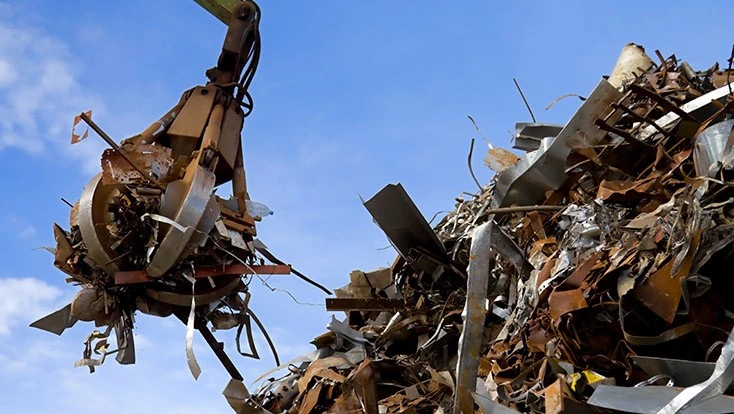
ihardzz | dreamstime.com
The Institute of Scrap Recycling Industries (ISRI), the Washington-based association that represents the recycling industry, has released its “Global Trends & Implications for Recyclers” report. The report was produced by global trend-watcher and author Vikram Mansharamani, Ph.D., and highlights possible futures the industry faces as well as potential ramifications for business practices, market pressures and the competitive landscape.
Mansharamani is a frequent trend and finance advisor on how to anticipate the future, manage risk and spot opportunities. He is the author of Think for Yourself: Restoring Common Sense in an Age of Experts and Artificial Intelligence and Boombustology: Spotting Financial Bubbles Before They Burst.
"The global trends currently creating unprecedented uncertainty are producing numerous opportunities and risks for the recycled materials industry,” Mansharamani says. “Appreciation for the many cross-currents will help managers, policymakers and the public understand the increasingly important role that the recycling industry will play in the future.”
The report focuses on several trends:
- climate change, sustainability and electrification;
- inequality, inflation and social pressures;
- technology, digitization and data; and
- geopolitical realignment and shifting trade patterns.
He paints a positive picture regarding future demand for recyclables.
According to the report, “Given the heavy use of coal in steelmaking, it’s not surprising that efforts to reduce its carbon footprint are underway.” Mansharamani writes that the process began in the 19th century with the development of the electric arc furnace (EAF), which account for more than 70 percent of steelmaking in the United States though less than 30 percent of global steel production. “This disconnect suggests a very bright future for the recycled ferrous metal market.”
He also notes the “seemingly unstoppable drive to electrify,” saying it will add to battery demand, “further fueling the demand for many critical ingredients … as well as rare earths that are essential for permanent magnets, etc.”
Mansharamani writes, “The global effort to decarbonize and ‘go green’ will require an increasing supply of raw materials, of which recycled materials will emerge as an ever more important source of high-quality renewable resources. The recycled materials industry is part of the solution to creating a secure, stable and greener manufacturing supply chain.”
He also points to shifting trade patterns that will create new markets and opportunities, writing, “The pandemic highlighted the fragility of tightly coupled supply chain strategies and brought risky geopolitical fault lines into the spotlight. And when scarce resources were allocated by producer nations based on national allegiances, companies around the world quickly acknowledged the need for multiple sourcing approaches.”
Mansharamani writes that these factors have caused companies to shift to “most-dynamic, just-in-case, and resiliency-focused approaches” to their supply chains.
He foresees increasing competition for scarce resources, adding, “The implications for the recycled materials industry are likely to be quite positive as governments seek to reduce imports, reuse already imported commodities and recycle disposed products—all in a quest to reduce dependence on other countries and increase self-reliance and national flexibility.”
“It’s important for the recycled materials industry to continue to monitor and consider trends,” ISRI President Robin Wiener says. “This report provides a great glimpse of the ramifications of global trends on the recycled materials industry in the short-term.”
Latest from Recycling Today
- U.S. Aluminum Co. explores aluminum fabrication plant in Oklahoma
- Sonoco completes portfolio transformation
- Eriez Shred1 data demonstrates scalable copper control
- RCI selects CurbWaste as exclusive operational management platform
- Updated: Supreme Court strikes down IEEPA tariffs
- Recycling Today Media Group launches Scrap Expo Lunch & Learn Webinar Series
- LyondellBasell scales back recycling target
- Former Liberty UK mills eyed by 3 suitors





